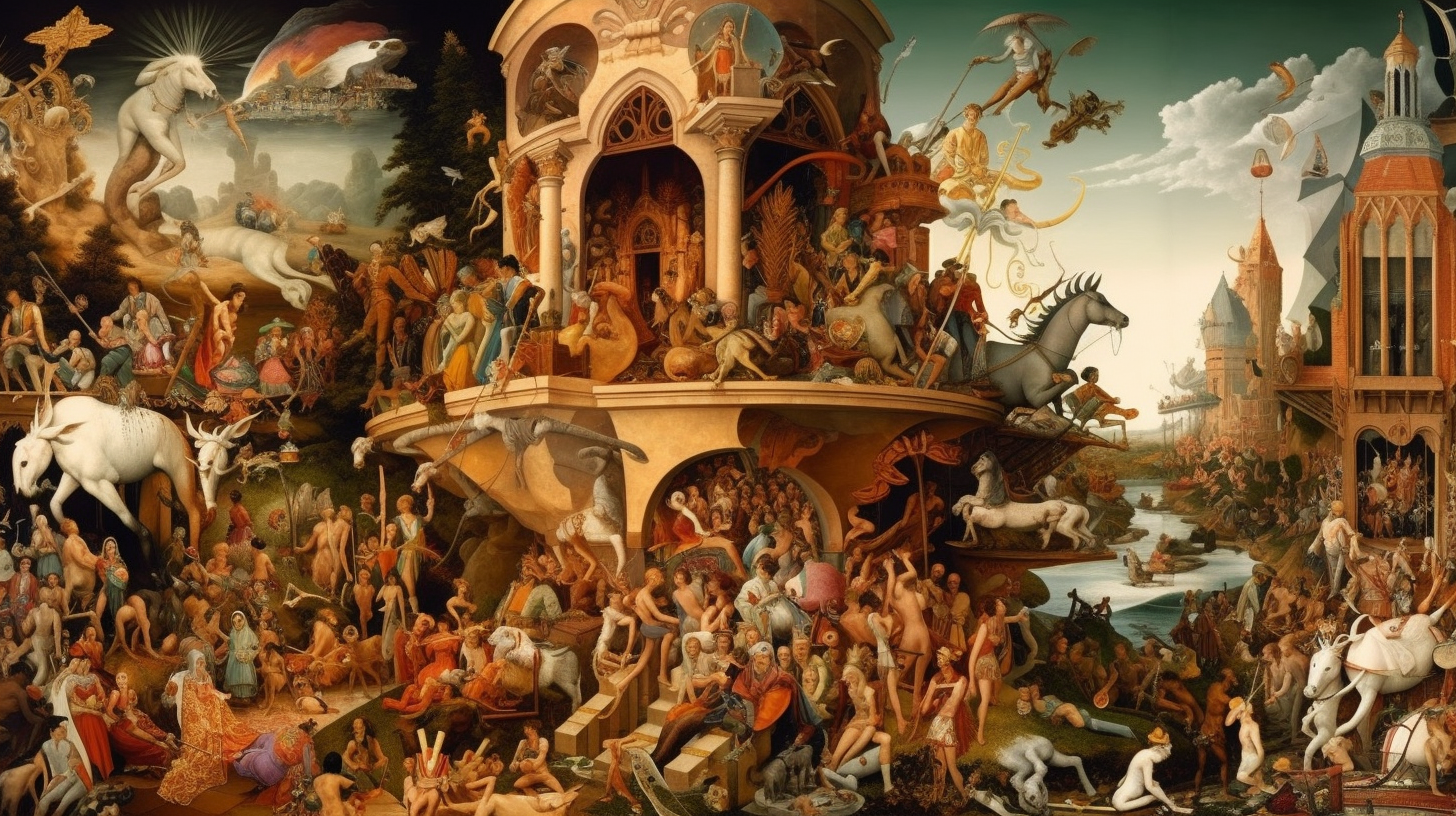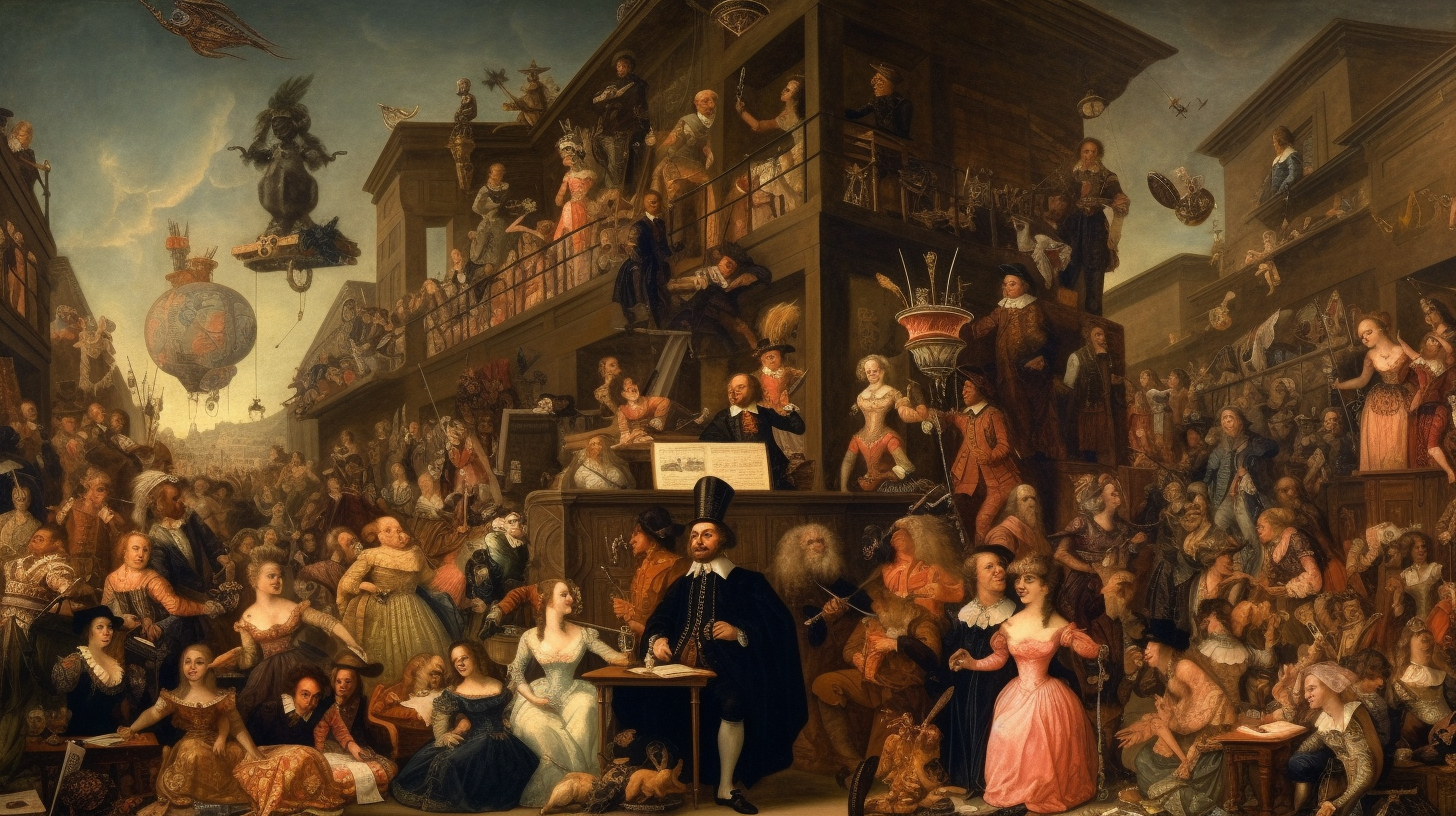The Influence of Western Thought on Modern Society
The profound influence of Western thought upon modern society manifests itself in myriad ways. From its nascent roots in ancient Greece to its resplendent blossoming during the Enlightenment, Western thinking has embraced a vast array of philosophical, political, scientific, and cultural ideas, imprinting a lasting imprint upon our collective consciousness. In this contemplative discourse, we shall explore the intricate tapestry of its influence, examining its impact on governance, individualism, science, technology, and ethics.

The indomitable force of Western thought has fundamentally shaped governance and political systems. The visionary city-states of ancient Greece pioneered the radical concept of democracy, wherein citizens participated actively in the democratic process. This audacious notion experienced a renaissance during the Enlightenment, bequeathing to subsequent generations the principles that underpin representative democracies around the world. Through their intellectual brilliance, the luminary philosophers John Locke and Montesquieu elucidated the principles of individual rights, the rule of law, and the imperative of separation of powers, thus laying the groundwork for the constitutional frameworks of numerous Western-influenced nations.
Central to the tenets of Western thought is the exaltation of the individual. With its ardent embrace of humanism, the Renaissance reignited a hunger for human potential and the salience of personal agency. It was during the Enlightenment, however, that the flame of individualism was fanned into an enduring conflagration as the champions of reason and Enlightenment promulgated the inalienable liberties of the individual and the sanctity of human rights. Eloquent testaments to this legacy reside in the United States Declaration of Independence and the Universal Declaration of Human Rights, emanating from Western thought's fertile soil. These seminal documents embody the unwavering determination to safeguard individual freedoms and the tireless pursuit of human happiness.

The Scientific Revolution, which germinated predominantly in Western Europe, heralded a paradigm shift in human understanding. Guided by the towering figures of Copernicus, Galileo, and Newton, Western thought boldly challenged the dogmas of tradition, liberating human inquiry from the shackles of preconceived notions. This profound emphasis on objective observation, empirical experimentation, and logical reasoning propelled the magnificent edifice of scientific and technological advancements. Medicine, transportation, communication—these spheres and countless others were transformed by Western thought's indomitable commitment to rationality and empirical inquiry.

The radiant tapestry of Western thought has profoundly influenced ethical frameworks and morality. The ancient Greek philosophers Plato and Aristotle laid the bedrock upon which ethical theories continue to reverberate in intellectual discourse corridors. Likewise, the ascendancy of Judeo-Christian values during the Middle Ages and the subsequent enlightening touch of thinkers such as Immanuel Kant engendered profound concepts such as the intrinsic dignity of every human being and the categorical imperative. These enduring ideas, etched deeply into the fabric of modern ethical systems, have shaped and informed debates on social justice, human rights, and the intricate web of responsibilities both individuals and societies bear.
The sway of Western thought upon modern society is immeasurable. Its indelible impact on governance, individualism, science, technology, and ethics has indubitably shaped the contours of our world. The clarion call for democracy, the reverence for individual rights, the pursuit of scientific inquiry, and the elucidation of ethical frameworks—these hallmarks of Western thought resonate across continents and through the annals of time. However, let us not succumb to complacency but rather engage in rigorous critical analysis, embracing diverse perspectives to ensure a nuanced and inclusive society. By delving into the historical roots of Western thought and its manifold implications, we can navigate the labyrinthine complexities of the modern world, ever striving for progress, equity, and the flourishing of humanity.

Plato Re-Imagined
This course offers 32 comprehensive lectures exploring most of Plato's dialogues. These lectures guide students toward a consilient understanding of the divine—a concept that harmonizes knowledge across disciplines and resonates with secular and religious leaders. As a bonus, Lecture #33 focuses on consilience, demonstrating how different fields of knowledge can converge to form a unified understanding.






